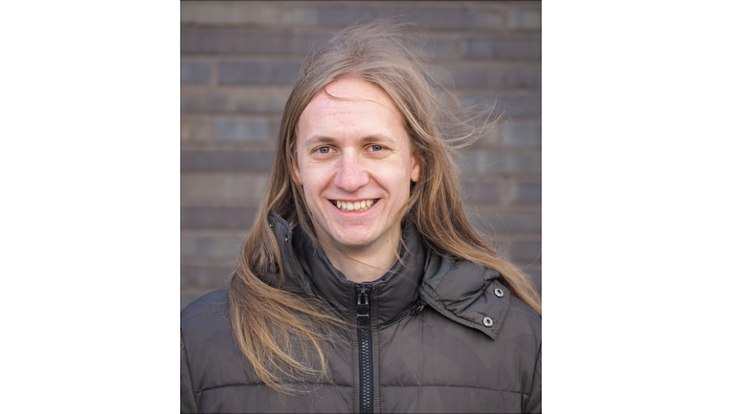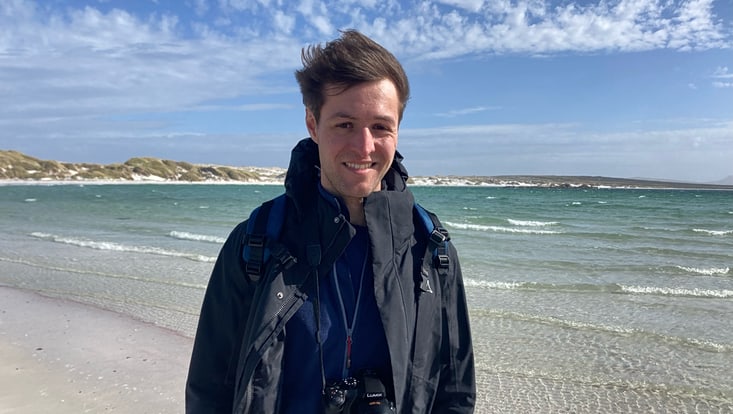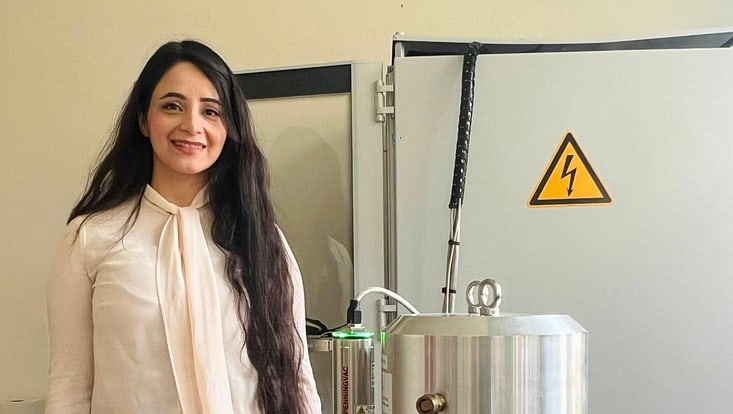Sven Bollweg
18 July 2024

Photo: Sven Bollweg
Sven Bollweg comes from Hamburg, Germany. He completed his Master's thesis on invertible Neural Networks for anomaly detection in particle physics in Hamburg in August 2021. Currently, he works at the Institute of Experimental Physics at Universität Hamburg, in the group for machine learning in particle physics led by Gregor Kasieczka. His focus is on anomaly detection for the level 1 (L1) trigger system of the CMS Experiment, one of the particle detectors at the LHC at CERN.
What is the topic of your research?
We accelerate protons to very high energies and collide them. At the collision we produce other particles which we measure with the detector to understand the physics of elementary particles. We do this 40 million times per second but we are not able to save all collision events, such that we need a trigger to select interesting events. For anomaly detection the selection is not based on specific models but instead we want to select events that just look different than the rest. I am working on such an anomaly detection trigger that is based on an artificial neural network.
What fascinates you about your research focus?
In general, particle and accelerator physics is very fascinating. We build huge accelerators and detectors to accelerate and detect tiny particles. In the end there is always the chance to find a new particle. More specific to my project, it is fascinating to think about the numbers the L1 trigger is dealing with. It reduces the event rate from 40 MHz to 100 kHz, which is an enormous reduction and for each event it must make the decision in a very short time of only a couple of microseconds.
What do you like about the cluster Quantum Universe?
Given that the project is integrated in the CMS collaboration, I do not benefit that much from the cluster, because most of the collaborators are CMS members directly from my institute or from outside Hamburg. But the Cluster offers a bunch of opportunities to get to know other PhD students in the broader research field, which is very helpful. I was also member of the student council for two years and doing that, I could get interesting insights into the cluster and got to know many people.
What do you like to do in your free time?
In my free time I am going Inline-Skating, and I am singing in a choir. From time to time, I also participate in Science Slams where I try to share my fascination with particle physics and machine learning with a broader audience.


